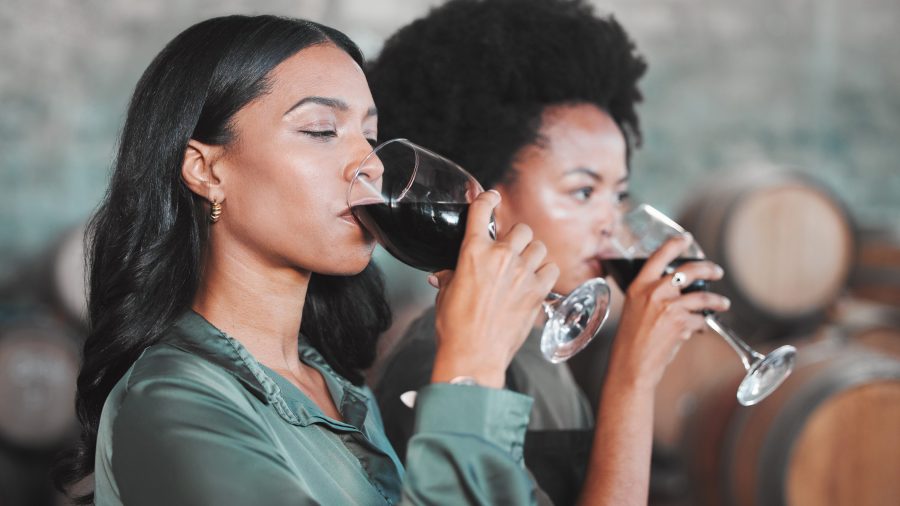Binge drinking and substance use spiked among adults 35 to 50 in 2022 — but not for Black folks
A new study finds that while cannabis, hallucinogens, and binge drinking have increased in recent years, racial gaps in drinking and drug use in the U.S. continue.
A recent study by the University of Michigan’s Monitoring the Future (MTF) panel found the use of cannabis, hallucinogens, and binge drinking skyrocketed among adults 35 to 50 years old in 2022 to “historic highs.” However, the data illustrates major gaps when broken down by race.
The MTF study, which has been following different cohorts of 8th, 10th, and 12th-grade students since 1975 to track their lifelong use of substances, illustrates through data collected over time how substance and alcohol use has fluctuated dramatically over the past several decades across genders, age ranges, and race.

According to the study, white and Hispanic respondents have historically led in all categories. In the latest set of data for 2022 for binge drinking among midlife adults, Black respondents had the lowest rate (17.1%), compared to white respondents (31.4%), and respondents solely identified as Hispanic (30.6%).
“Among midlife adults ages 35 to 50, there have been significant increases in binge drinking over the past one year, five years, and [ten] years among white midlife adults only,” researchers wrote in the study.
The results are similar among young adults. Hispanic young adults had the highest prevalence of binge drinking at 35.2%, white young adult respondents were the second highest at 32.5%, and Black young adults were much lower at 20%.
Outside of binge drinking, in 2022, white young adult respondents had the highest prevalence of alcohol use in the past 30 days at 70.3%, followed by Hispanic young adults (66.2%) and Black young adults (60.7%).
While the stats for Black young adult respondents remain lower, researchers highlight how there has nevertheless been a “significant” increase in alcohol use in the past 30 days over the last five years among Black young adults. In 2017, 51.7% of Black young adults reported having had a drink within the last 30 days.
“Differences in alcohol use have persisted over time,” the researchers noted.
It would appear the same is true for cannabis use. In 2022, Black, white, and Hispanic young adults reported similarly high prevalences of cannabis use in both the past 12 months and past 30 days categories. According to researchers, “this ranking has shifted over time.”
Researchers added, “From the late 1980s through 2007, white young adults consistently had significantly higher prevalence of marijuana use than Black and Hispanic young adults.” Overall, the research indicates that in that time span, young adults and midlife adults have been turning to alcohol and substances, including cannabis and hallucinogens, at increased rates.
Regarding substances other than cannabis, white and Hispanic respondents consistently have the highest rates across age ranges. According to MTF, Black respondents – who have been included in the survey since 1988 – have had the lowest rates of substance use outside of cannabis across age ranges.
In 2022, 20.7% of Hispanic respondents and 17. 8% of white respondents reported using a substance other than cannabis within the last 12 months, while 8.3% of Black respondents reported the same. Looking at this category among midlife adults, 13.1% of white respondents and 12.0% of Hispanics reported using something other than cannabis within 12 months, while only 5.2% of Black respondents reported the same.
“Understanding these trends is a first step, and it is crucial that research continues to illuminate how substance use and related health impacts may change over time,” the National Institute of Drug Abuse director Nora Volkow said in a release. “We want to ensure that people from the earliest to the latest stages in adulthood are equipped with up-to-date knowledge to help inform decisions related to substance use.”
TheGrio is FREE on your TV via Apple TV, Amazon Fire, Roku, and Android TV. TheGrio’s Black Podcast Network is free too. Download theGrio mobile apps today! Listen to ‘Writing Black’ with Maiysha Kai.


